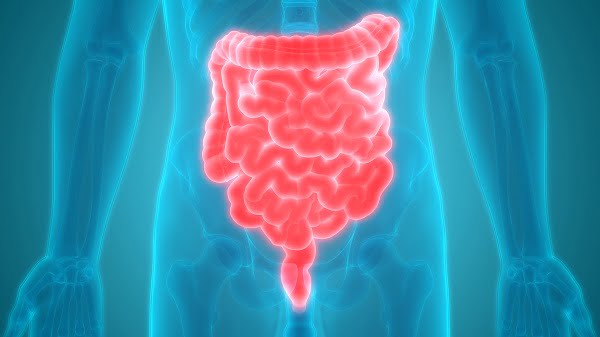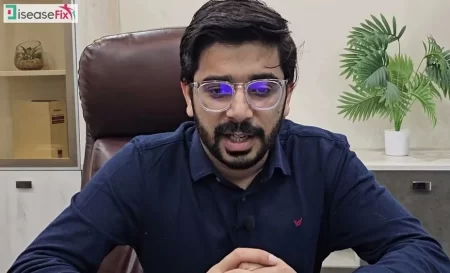How Do Doctors Diagnose Irritable Bowel Syndrome?
- Updated on: Jul 15, 2024
- 3 min Read
- Published on Apr 19, 2021


Diagnosis of Irritable Bowel Syndrome
If you suspect that you have irritable bowel syndrome, it is important to meet a doctor (a general physician or a gastroenterologist) to seek medical advice about what is causing the symptoms.
These symptoms may develop due to irritable bowel syndrome (IBS) or any other disease such as diverticulitis, polyps, Celiac disease etc, which may produce similar symptoms as that of IBS.
Your doctor will be able to diagnose IBS based on your medical history, symptoms, and physical examination. He or she may also ask for tests.
Medical History Review
The medical history may include questions such as:
- your symptoms of the disease
- family history of any gastrointestinal (GI) tract problems
- recent GI infections
- any medicines that might have triggered the symptoms
- stressful events that might have triggered the condition
- how long you have been experiencing the problems
Your doctor will look for the pattern in your symptoms. He or she will try to understand:
- when did your symptoms started to appear
- whether you’ve had pain or discomfort in your abdomen at least four times a month for the past few months
- whether pain in your abdomen or discomfort improves after a bowel movement
- whether your bowel movement have changed since the symptoms started developing
- whether there is a change in the form of stool since the symptoms first started developing
Physical Examination
During a physical exam, your doctor will:
- check for abdominal bloating (gas)
- listens to sounds in your abdomen using a device called stethoscope
- test for tenderness in the stomach
- press on the stomach to know about pain
Based on the review of your symptoms and physical exam, your doctor will decide which tests, if any, are needed for diagnosing the condition and ruling out other possibilities.
An experienced physician’s judgment is most important in determining what tests are needed for accurate diagnosis. Testing requirements vary for each individual depending on factors such as family history, symptoms, psychological condition, etc.
Is there a test for irritable bowel syndrome (IBS)?
There’s no test as such to definitively diagnose irritable bowel syndrome. Your doctor will start with a medical history review, physical examination, and tests to rule out other diseases that may show similar symptoms.
If you have diarrhea along with IBS, you may be tested for gluten intolerance (celiac disease).
What tests do doctors use to diagnose IBS?
To diagnose IBS, your doctor will take a complete medical history and perform a physical exam as discussed above. If the doctor requires, he or she may ask for any of the following tests:
Blood Tests
A complete blood count is done generally to check for conditions such as anemia and other abnormalities. Your doctor may recommend blood tests for tissue damage or inflammation, or for celiac disease.
Your doctor may perform more blood tests based on the results of the blood test and based on other factors such as family history and your symptoms and if you have:
- fever
- anemia
- bleeding from your rectum
- unexplained weight loss
The doctor will use your blood test results to check for conditions other than IBS. He or she will send your blood sample to a lab for the testing.
Stool Tests
Stool tests are done to check for bacterial infections, intestinal parasites, or reasons for the blood in your stool if it appears.
Your doctor will give you a container to hold a stool sample. This will be sent for analysis, to check for blood or parasites or infections. Your doctor may also check for blood in your stool by examining your rectum in a physical exam.
Sigmoidoscopy or Colonoscopy
Sigmoidoscopy or Colonoscopy allows visual examination of your rectum and the large intestine (colon) with the help of a scope.
These tests are usually done when there are warning signs such as bleeding from rectum, unexplained weight loss, or to test for colon cancer if you are old aged.
Flexible sigmoidoscopy is a testing method that uses a flexible, narrow tube with a tiny camera (called a sigmoidoscope) on one end to look what is wrong inside your rectum and colon.
Colonoscopy is a diagnostic procedure that involves a long, flexible, and thin tube with a tiny camera (called a colonoscope) fitted on its one end to see inside your rectum and colon.
X-rays
Your doctor may also ask for an X-ray.
Further tests for irritable bowel syndrome (IBS)
Further testing may also be needed if you have a family history of colon cancer or ovarian cancer, or if your age is 60+ years and if you noted changes bowel habits for more than five weeks.
In such cases, your doctor may recommend to check for abnormalities in your gut and to rule out other conditions such as:
- Food allergies or food intolerances, such as lactose intolerance and poor dietary habits
- Reactions to certain medications such as for high blood pressure (hypertension) drugs, iron, and certain antacids
- Inflammatory bowel diseases like ulcerative colitis or Crohn’s disease
- Infections
- Enzyme deficiencies












